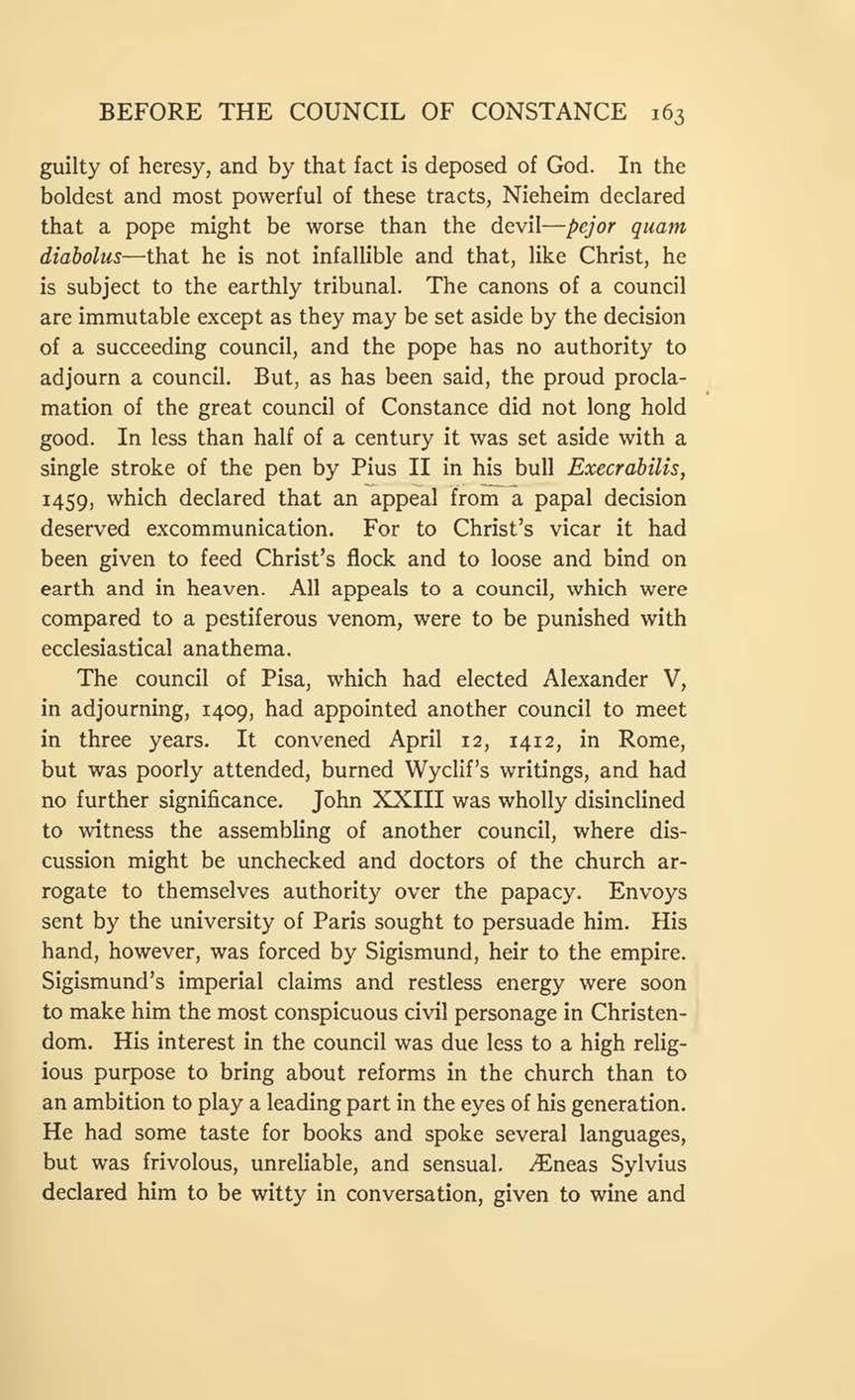guilty of heresy, and by that fact is deposed of God. In the boldest and most powerful of these tracts, Nieheim declared that a pope might be worse than the devi—pejor quam diabolus—that he is not infallible and that, like Christ, he is subject to the earthly tribunal. The canons of a council are immutable except as they may be set aside by the decision of a succeeding council, and the pope has no authority to adjourn a council. But, as has been said, the proud proclamation of the great council of Constance did not long hold good. In less than half of a century it was set aside with a single stroke of the pen by Pius II in his bull Execrabilis, 1459, which declared that an appeal from a papal decision deserved excommunication. For to Christ’s vicar it had been given to feed Christ’s flock and to loose and bind on earth and in heaven. All appeals to a council, which were compared to a pestiferous venom, were to be punished with ecclesiastical anathema.
The council of Pisa, which had elected Alexander V, in adjourning, 1409, had appointed another council to meet in three years. It convened April 12, 1412, in Rome, but was poorly attended, burned Wyclif’s writings, and had no further significance. John XXIII was wholly disinclined to witness the assembling of another council, where discussion might be unchecked and doctors of the church arrogate to themselves authority over the papacy. Envoys sent by the university of Paris sought to persuade him. His hand, however, was forced by Sigismund, heir to the empire. Sigismund’s imperial claims and restless energy were soon to make him the most conspicuous civil personage in Christendom. His interest in the council was due less to a high religious purpose to bring about reforms in the church than to an ambition to play a leading part in the eyes of his generation. He had some taste for books and spoke several languages, but was frivolous, unreliable, and sensual. Æneas Sylvius declared him to be witty in conversation, given to wine and
